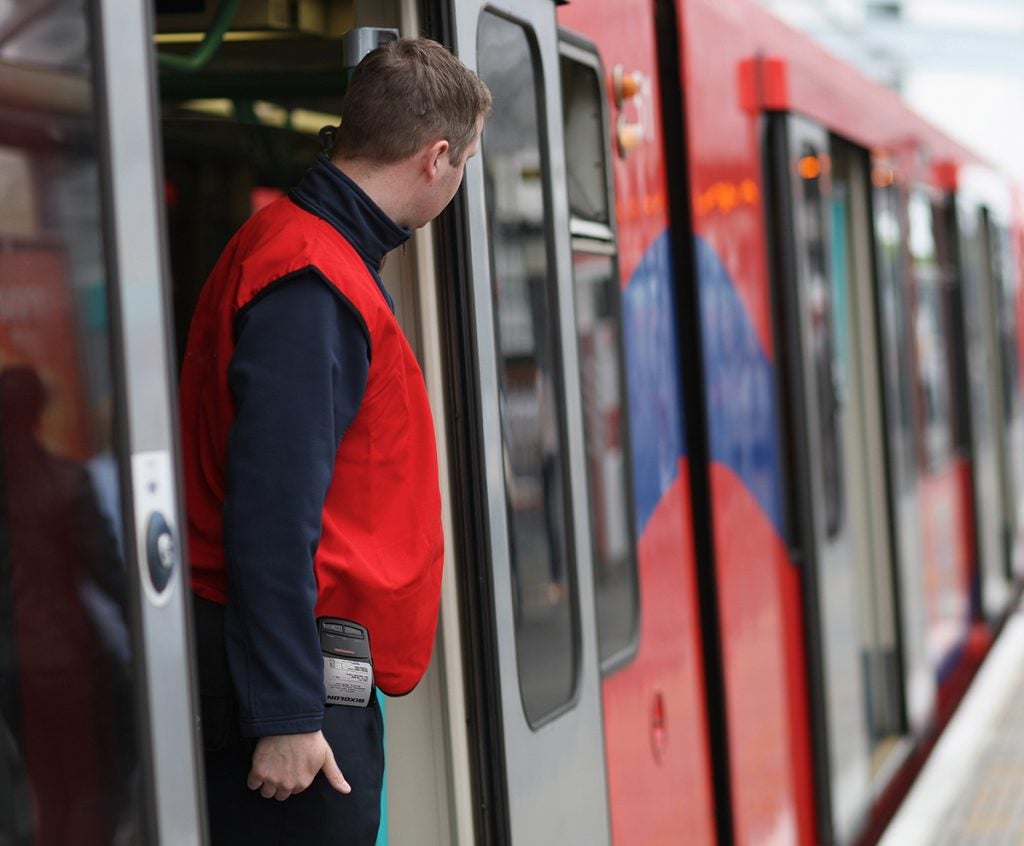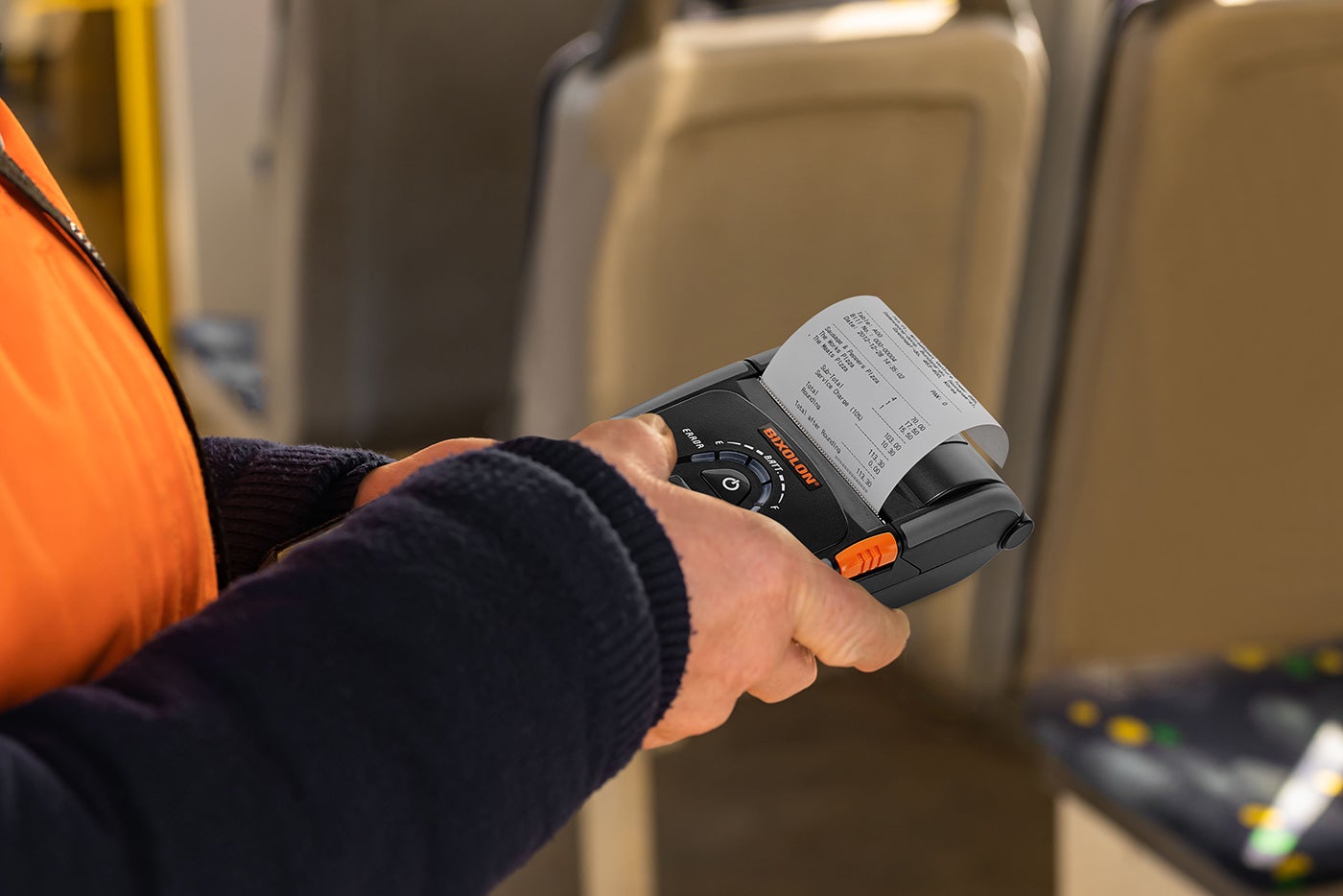Ticket inspectors have a crucial role to play in facilitating the travel of rail passengers in the UK, where over 1.61 billion journeys were taken between April 2023 and March 2024.
Although e-ticketing is on the rise, physical tickets remain crucial for VAT receipts and customer convenience.

However, ticket inspectors face having to produce physical tickets despite significant challenges in the industry, including staff shortages and the pervasive issue of fare evasion in a busy and congested railway network.
So how can the railway industry safeguard its key frontline staff, and enable them to work efficiently despite these challenges?
Staff shortages and fare dodging
The UK rail sector faces crippling staff shortages and an impending shortfall of approximately 75,000 personnel by 2030. This shortage places significant pressure on existing railway staff, including ticket inspectors, and slows down operational processes.
Trains are also becoming busier due to industrial action and service adjustments, similar to trends across Europe. In Germany, for example, local rail services saw a 14% increase in passenger numbers in the first half of 2023 compared to the previous year.
In both countries, ticket inspectors must move through crowded carriages, often standing for long periods, all while needing to validate tickets and issue essential receipts to those that require them effectively.
Adding to these challenges is the prospect of fare evasion. Inspectors must verify the tickets of passengers efficiently but also address instances of fare dodging promptly and effectively. This requires specialised tools to ensure accuracy and speed in their duties.
A report by the Rail Delivery Group (RDG) estimates that fare dodging costs the UK rail industry £240m a year – or £457 a minute – demonstrating the severity of the problem.
Increasing fare evasion emphasises the need for inspectors to be equipped to issue new tickets and penalty notices on the spot at speed, which also acts as a deterrent to further fare dodging and helps to recoup lost revenue.
Mobile printing solutions
To overcome these issues, railway staff are increasingly turning to technology. Equipping ticket inspectors with compact, lightweight mobile printers allows them to seamlessly integrate and connect with existing Point of Sale (POS) systems, facilitating real-time ticket issuance and receipt printing across diverse operational environments.
Mobile printing technology is also strong in this field because it allows for greater flexibility and customisation in ticketing. Inspectors can print a number of different ticket types and formats on demand, ensuring that all necessary information is captured and printed accurately.
This is a significant benefit for both inspectors and passengers, allowing clear, legible tickets to be printed at speed, which reduces wait times and improves customer experience.
Speed is key in situations where passengers need to disembark quickly to catch a connecting train, or where a fare-dodging passenger may look to leave the train before the conductor reaches them.

Improving mobility and safety
Remaining mobile and ensuring safety are also key priorities for rail ticketing staff, who often spend long periods standing. By attaching these devices to belts or harnesses, inspectors can use them effectively in crowded train environments, helping to reduce the physical strain of the job.
Additionally, by removing the need for a fixed POS to print tickets and receipts, inspectors can ensure that they have a continuous presence throughout the train. This offers benefits in allowing more passenger interaction, and by reducing the likelihood of fare evasion.
Being able to print tickets quickly and accurately is important to ticket inspectors, who may face inappropriate or rude behaviour from passengers who are made to wait. Therefore, fast printing in some circumstances can help to reduce the abuse that rail staff sadly experience on a daily basis.
Another important consideration for any technology utilised by conductors in these environments is that they need to be rugged. Travelling in tight, crowded spaces sees these tools and pieces of equipment experiencing a lot of bumps and knocks, and harsh weather. Therefore, it’s important that printers and their related equipment can withstand the rail environments, such as trains and train stations, that this sort of equipment operates within.
The integration of mobile printing technology represents a significant advancement in enhancing the effectiveness and safety of rail ticket inspectors. As railway staff come under increased pressure from staff shortages, overcrowded trains, and fare evasion, the use of mobile printing devices empowers them to perform their duties with greater confidence and efficiency.
By embracing mobile printing technology, rail companies and ticket inspectors are better equipped to deal with the demands of the industry today, and are able to meet customer requirements while concurrently working towards a safer and improved service for all involved.




